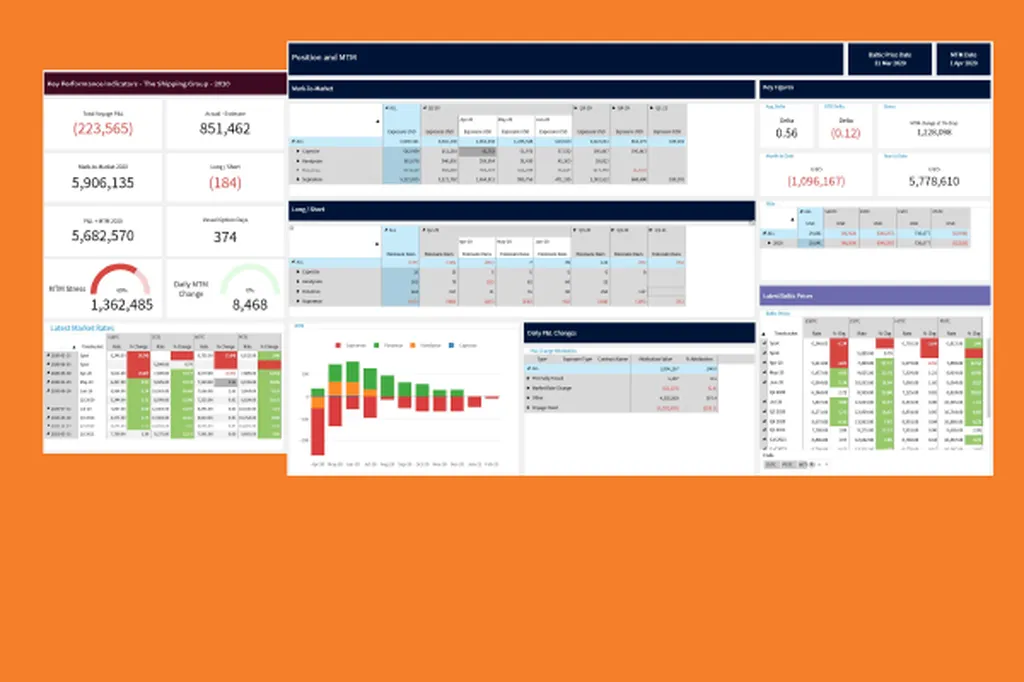The shipping market is in a state of flux, and ION Commodities is betting big on its Softmar platform to help charterers navigate the storm. The newly relaunched cloud-based software is a bold response to a sector grappling with freight rate volatility, environmental regulations, and geopolitical sanctions. These aren’t just operational headaches anymore—they’re existential threats to profitability. Softmar’s refresh is a recognition that the old ways of managing freight just won’t cut it in this new reality.
ION Commodities has taken a sledgehammer to the silos that once separated chartering, voyage operations, and risk assessment. By unifying these core functions into a single system, Softmar is offering a level of convenience that’s long overdue. But convenience is just the starting point. The real game-changer is the platform’s new proprietary analytical tool, designed to forecast profit impacts from freight market movements. This isn’t your grandfather’s risk assessment. It’s a dynamic, forward-looking evaluation that traditional methods can’t match.
The platform also now incorporates capabilities for monitoring carbon output. This is more than just a nod to environmental responsibility—it’s a strategic move. With regulations tightening and carbon pricing on the horizon, the ability to track and manage emissions isn’t just good PR; it’s good business. Softmar’s carbon monitoring tools are a clear signal that ION Commodities is future-proofing its clients’ operations.
The relaunch of Softmar is a strategic response to a period of pronounced instability. Fluctuating freight rates, stringent new environmental regulations, and the complications introduced by international sanctions have collectively elevated freight management from an operational task to a critical element of financial risk and profitability. In this environment, Softmar’s unified approach offers a level of control and foresight that could mean the difference between profit and loss.
The platform’s ability to forecast profit impacts from freight market movements is a notable addition. This isn’t just about reacting to market shifts—it’s about anticipating them. By offering a more dynamic evaluation of exposure, Softmar is giving charterers a tool to navigate volatility with greater confidence.
The incorporation of carbon output monitoring is another significant development. As the maritime industry faces increasing pressure to reduce emissions, the ability to track and manage carbon output is becoming a critical component of operational strategy. Softmar’s carbon monitoring tools provide a comprehensive view of a vessel’s environmental impact, enabling operators to make data-driven decisions that align with regulatory requirements and sustainability goals.
In an industry where margins are tight and risks are high, Softmar’s unified approach to freight management offers a level of control and foresight that could mean the difference between profit and loss. By integrating chartering, voyage operations, and risk assessment into a single system, the platform provides a holistic view of freight management, enabling operators to make informed decisions that drive profitability and sustainability.
The relaunch of Softmar is a strategic response to a period of pronounced instability. Fluctuating freight rates, stringent new environmental regulations, and the complications introduced by international sanctions have collectively elevated freight management from an operational task to a critical element of financial risk and profitability. In this environment, Softmar’s unified approach offers a level of control and foresight that could mean the difference between profit and loss.
The platform’s ability to forecast profit impacts from freight market movements is a notable addition. This isn’t just about reacting to market shifts—it’s about anticipating them. By offering a more dynamic evaluation of exposure, Softmar is giving charterers a tool to navigate volatility with greater confidence.
The incorporation of carbon output monitoring is another significant development. As the maritime industry faces increasing pressure to reduce emissions, the ability to track and manage carbon output is becoming a critical component of operational strategy. Softmar’s carbon monitoring tools provide a comprehensive view of a vessel’s environmental impact, enabling operators to make data-driven decisions that align with regulatory requirements and sustainability goals.
In an industry where margins are tight and risks are high, Softmar’s unified approach to freight management offers a level of control and foresight that could mean the difference between profit and loss. By integrating chartering, voyage operations, and risk assessment into a single system, the platform provides a holistic view of freight management, enabling operators to make informed decisions that drive profitability and sustainability.

